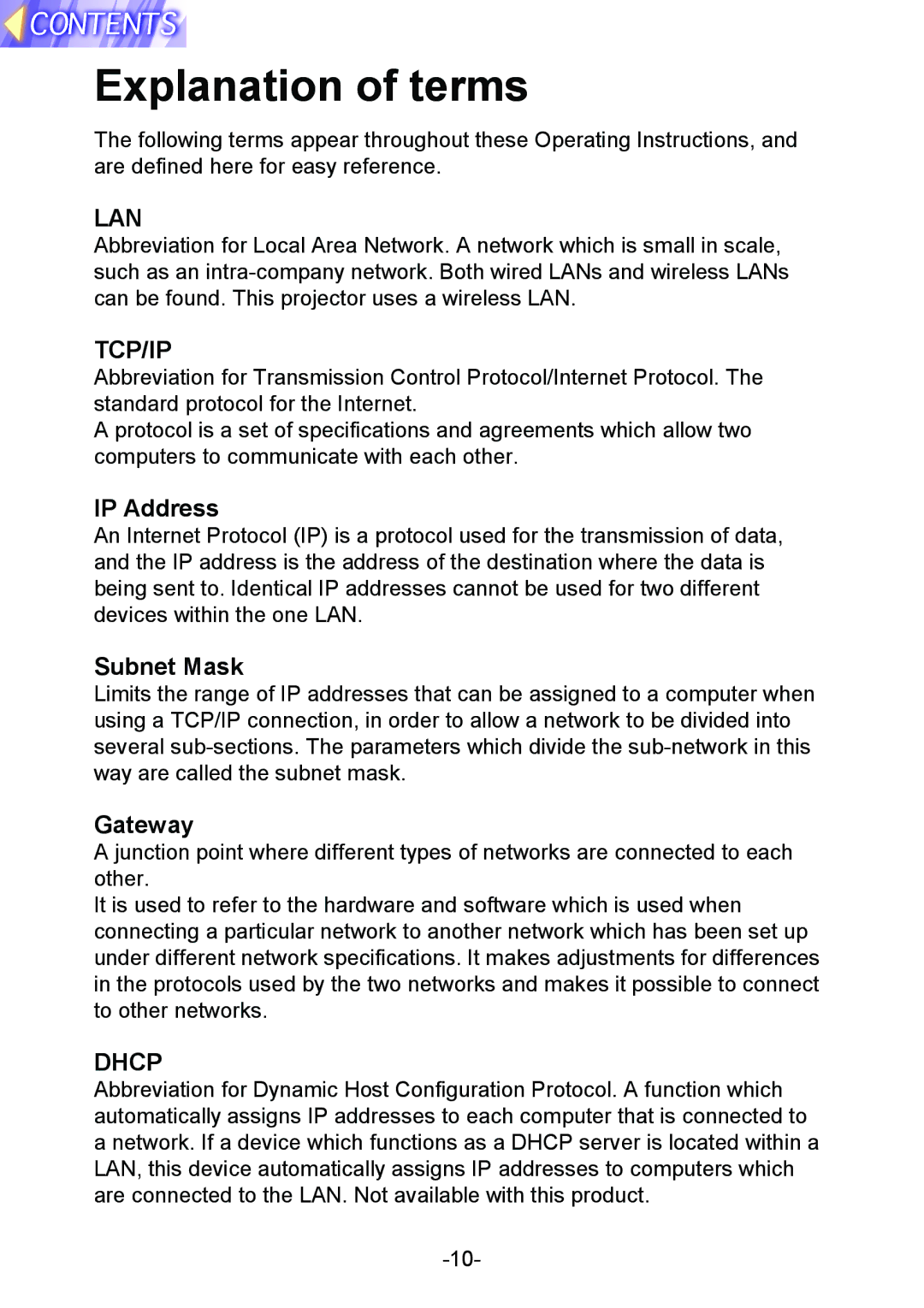Explanation of terms
The following terms appear throughout these Operating Instructions, and are defined here for easy reference.
LAN
Abbreviation for Local Area Network. A network which is small in scale, such as an
TCP/IP
Abbreviation for Transmission Control Protocol/Internet Protocol. The standard protocol for the Internet.
A protocol is a set of specifications and agreements which allow two computers to communicate with each other.
IP Address
An Internet Protocol (IP) is a protocol used for the transmission of data, and the IP address is the address of the destination where the data is being sent to. Identical IP addresses cannot be used for two different devices within the one LAN.
Subnet Mask
Limits the range of IP addresses that can be assigned to a computer when using a TCP/IP connection, in order to allow a network to be divided into several
Gateway
A junction point where different types of networks are connected to each other.
It is used to refer to the hardware and software which is used when connecting a particular network to another network which has been set up under different network specifications. It makes adjustments for differences in the protocols used by the two networks and makes it possible to connect to other networks.
DHCP
Abbreviation for Dynamic Host Configuration Protocol. A function which automatically assigns IP addresses to each computer that is connected to a network. If a device which functions as a DHCP server is located within a LAN, this device automatically assigns IP addresses to computers which are connected to the LAN. Not available with this product.
